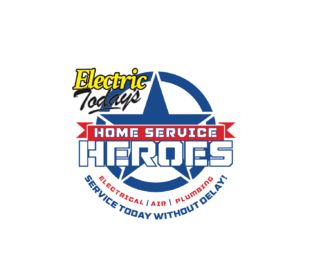As we slowly begin to assess the damage caused by Hurricane Irma, we look toward the future with cautious optimism. The staff of Home Service Heroes knows that the repairing and rebuilding of our homes and cities is not something that will happen overnight. This is why it is important to reach out to our friends and neighbors for strength during this time of adversity. It’s also essential that we proceed with caution in returning to areas that were impacted by the disaster; especially homes and buildings that will require a lot of work before they are once again habitable. Home Service Heroes has put together a list of post-hurricane safety tips and emergency numbers as we come together to recover – and thrive.
Safety Tips:
- If you own a backup generator, never run it in an enclosed area – including your home or garage. Make sure that you keep your generator at least 20 feet away from the house as carbon monoxide can seep through windows and doors.
- Keep away from standing water. Aside from deadly toxins, the water could conceal downed electrical lines and dangerous debris.
- Avoid walking or driving through moving flood waters. 6 inches of moving water can knock a person down, while just one foot of moving water can generate enough force to move a vehicle.
- Uprooted trees can damage gas lines. If you smell gas on your property, report it immediately.
- Try to use water in your home sparingly. In order to prevent (and reduce the risk) of sewer system backups, minimize the use of your tap water. This encompasses faucets, showers, toilets, dishwashers, and any appliances that use water.
- Be mindful of open flames. If you build a fire, never leave it unattended – and always put it out when you are finished using it. Candle use in homes should be monitored closely if children and pets are on the property.
- Downed power lines are one of the more dangerous elements after a hurricane. Electrical lines can be hidden in flood water, underneath debris, or in plain sight. Be aware of downed power and transformer poles, which are easier to spot than their deadly electrical lines.
- Traffic light intersections should be approached like a four-way stop. Any driving should be approached with caution – and avoided if possible.
- Make sure that you photograph the damage to your property immediately. This will help in filing your insurance claim.
- Try to protect your home from further damage (such as securing the roof with a tarp or bracing broken windows with cardboard). Some insurance might not cover additional damage after a storm.
- Prepare a list of damaged or lost items to give to your claims adjuster.
- When cleaning up your home, make sure to wear gloves and protective eyewear.
Florida Emergency Numbers:
- Updates from the Florida Division of Emergency Management: text FLPREPARES to 888777.
- To report price gouging call 1-866-966-7226.
- Florida Emergency Information: 1-800-342-3557
- Emergency referral line: 211
- FEMA Registration: 800-621-3362 | 800-462-7585
- Florida Department of Agriculture & Consumer Services: 800-435-7352
- Elder Affairs: 800-963-5337
- Florida Insurance Claim Hotline: 800-277-8676
- Unemployment Claims Emergency Hotline: 800-204-2418
- DUKE CUSTOMERS: To report outages you can text OUT to 57801 (standard text and data charges may apply. You can also call the automated outage-reporting system at 800.228.8485
- TECO CUSTOMERS: To report outages you can text OUT to 35069. You can also call 1-877-588-1010.
- Sumter County Citizens’ Information Line at 352-569-3190.
- The Citizen Information Line: 407-246-4357
U.S. Coast Guard:
- Sector San Juan Command Center: (787) 289-2041
- Sector Miami Command Center (305) 535-4477
- Sector St. Petersburg Command Center (305) 535-4477
- Sector Jacksonville Command Center (904) 714-7500
Insurance Hotlines:
- State Farm: 800-732-5246
- Allstate: 800-547-8676
- Citizens: 866-411-2742
- Nationwide: 800-421-3535
- USAA (Military): 800-531-8222
More Florida Disaster Information
*Coast Guard Photo Courtesy of the U.S. Department of Defense
